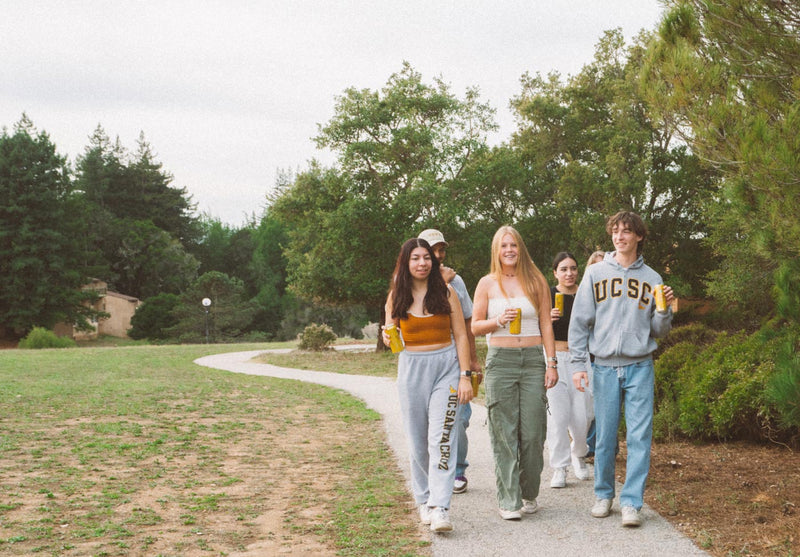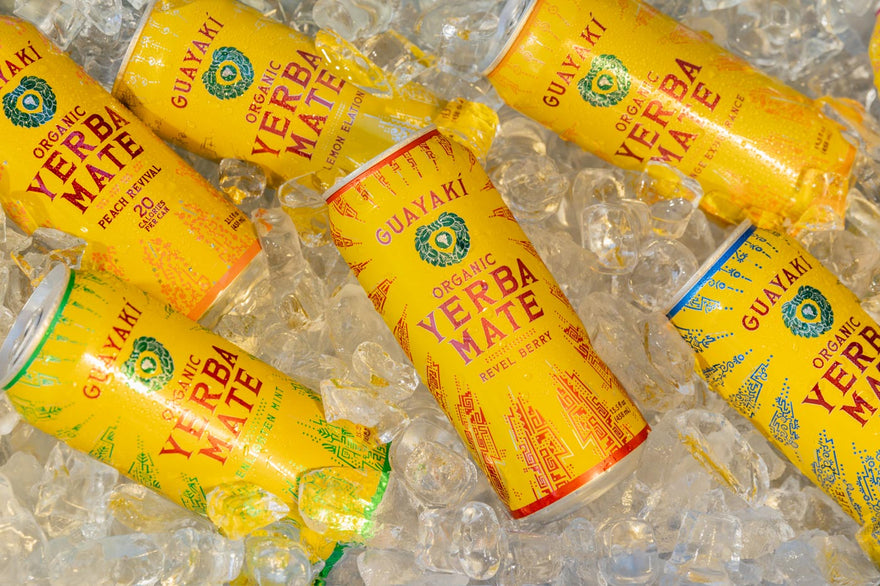
Article by Martín Caballero, Jun. 24, 2024
While energy drinks as a category have been growing, much of those gains have been fueled by brands — Celsius, C4, Alani Nu, among others — with roots in sports nutrition. In contrast, several recent big-brand experiments in natural energy, such as Vita Coco’s Runa and Starbucks’ Baya Energy, have fizzled.
Guayakí has managed to buck that trend; despite over 20 years on the market, the yerba mate company’s approach has rarely felt as deliberate and coordinated as it does now. With sales momentum still rising and fresh leadership at the helm, the brand is chasing opportunities to diversify (and add to) its 45,000 total doors across the U.S. and Canada.
Why now? After 20-plus years of building the brand in natural grocery stores, Guayakí consumers began to demand greater availability, explained head of distribution Jared Riddle on a call last week. Efforts to expand ran up against the company’s ambitious plans to build The Yerba Mate Co., a national self-distribution system staffed by formerly incarcerated workers. That network still exists in California — it’s about 32% of the company’s total business, he said — but attempts to build broadly outside of its base at Whole Foods proved complicated.
In contrast, the brand’s current distribution strategy is more conventional, if no less ambitious. Nationwide, Guayakí has on-boarded over 130 distributorships in the last 16 months as it looks to plug gaps in grocery while dipping further into new channels as well.
The numbers reflect that shift: the natural channel was once 70% of the business, said Riddle, but is now around 17%, with convenience representing north of 40%; the vast majority of Guayakí’s 18,000 c-store footprint runs from Colorado to California. Nationwide, dollar sales growth in the channel is up 22% year-to-date, according to the brand.
“If you think about it from a day-part perspective, consumers are most likely to pop into a convenience store to get that lift that they need,” said Riddle. “Whether it’s in the morning or the afternoon, when they need that little lift, they know they can buy Guayakí there now.”
The company is responding by doubling-down on c-stores this summer. Guayakí’s drinks can now be found in over 3,500 7-Eleven locations nationwide, with Florida (900 stores), Texas, Utah, and Nevada all coming online. It’s also currently being tested at QuikTrip stores in Texas and Arizona, while ampm is taking the product into 1,000 locations across Arizona, Nevada and California.
Within the channel, Guayakí’s non-carbonated 15.5 oz. cans (150mg of caffeine each) are well-positioned for cold grab-and-go energy occasions across the day, but the drinks are still typically merchandised alongside teas, coming in at the higher end of the price spectrum at $3.29 each.
On the other end of the retailer spectrum, Costco has emerged as an increasingly active partner. Guayakí is now in all 200-plus stores in the big-box chain’s Northern California division, with a footprint in Southern California and potentially more stores in the Pacific Northwest on the way. One of its promotions landed the drinks a coveted spot on the first pallet as customers walked into stores.
Strong performances on-shelf have also earned Guayakí a tight relationship with Target in recent years; the brand outsold all but five other energy drinks at the chain in 2023, though it’s categorized as a tea, said Riddle. This year, Guayakí moved from 900 stores to all U.S. Target locations, and is currently in the midst of a nine-week end cap display program.
Even Walmart, which Riddle admits remains “not completely sure that their consumer aligns with our product,” has put Guayakí in 860 stores, up from 251 last year.
As for Guayakí’s consumers, Riddle said their top request is for more lower-calorie options. The brand responded with its first 20-calorie (2 grams of sugar) flavor, Peach Revival, last year, followed by Berry Lemonade this spring, which has already climbed to the company’s fourth most-popular SKU. Next up is a low-calorie variety pack set to launch within weeks in Costco’s NorCal division.
The moves come against the backdrop of leadership changes at the company, as former Harmless Harvest CEO Ben Mand joined in March. But the new boss isn’t under immediate pressure to produce results: as it approaches nearly 30 years in business, Guayakí holds 85% market share in RTD yerba mate, dwarfing newcomers like Yachak, Yerbae and Clean Cause. Its ability to stretch across tea and energy markets is also unique; Guayakí dollar sales growth is outperforming the energy category in core trade channels across all U.S. regions, per the company.
“I think first of all it’s important that the leadership and our distribution teams are all fully aligned against our mission and values,” Riddle said. “And one of the beautiful things is that with the most recent change in leadership we’re still hitting our goals that we set out last year. We have not deviated whatsoever.”
Original article posted on BevNET here >
Essential Reads
1/3































